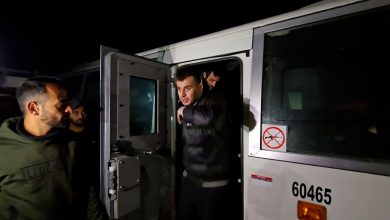The humanitarian crisis in the Gaza Strip has reached a devastating new level, with children bearing the brunt of the ongoing conflict and its crippling aftermath. A staggering number of young lives are threatened by malnutrition, hunger, and a severe lack of access to essential healthcare. The situation, exacerbated by over a year of persistent hostilities, paints a grim picture of suffering and deprivation.
Raafat al-Majdalawi, Director-General of the Al-Awda Health and Community Association, described the reality for children in Gaza as “beyond comprehension” in a statement to Al Jazeera. He emphasized that the recorded figures represent a horrifying scale of violations against the most vulnerable members of Palestinian society.
According to al-Majdalawi, a heartbreaking 154 children have already died in the Gaza Strip as a direct result of malnutrition. Furthermore, over 51,000 children are currently receiving medical treatment in hospitals and health centers for illnesses linked to starvation and food shortages. The crisis extends beyond mere hunger, manifesting in a spectrum of severe health complications that overwhelm the already strained medical infrastructure.
The conflict’s impact extends beyond the immediate physical needs. Al-Majdalawi highlighted the tragic reality that, on average, 77 children were losing a parent each day due to the violence. This leaves them orphaned and vulnerable, lacking even the most basic necessities for survival and stability. The dire conditions are also taking a toll on pregnant women, with a reported 16 miscarriages occurring daily due to malnutrition and the complete absence of adequate prenatal care. The cyclical nature of this tragedy ensures that future generations will continue to be affected.
Further compounding the misery, over 1,015 infants under six weeks old have perished as a direct consequence of the conflict. In addition, 450 fetuses were lost in utero due to the mothers’ inability to sustain healthy pregnancies under such extreme conditions. Since the start of the ongoing hostilities, over 12,000 miscarriages have been recorded, a chilling testament to the devastating impact on maternal health.
The long-term consequences of this crisis are equally alarming. For the second consecutive year, nearly 500,000 children in Gaza are deprived of education. Schools have either been destroyed in the fighting or repurposed as shelters for displaced families, effectively halting the educational progress of an entire generation. The disruption to their schooling creates a cycle of disadvantage, limiting their future opportunities and perpetuating the cycle of poverty and instability.
The shortage of essential supplies is particularly acute when it comes to infant nutrition. Al-Majdalawi pointed out that 40,000 infants under one year old require daily milk formula. The total number of children in need of formula reaches a staggering 107,000. However, the available quantities are insufficient, and even when supplies are available, they are often sold at exorbitant prices, making them unaffordable for most families struggling to survive. This creates a cruel dilemma, forcing families to choose between feeding their children and meeting other essential needs.
The crisis is not solely confined to food security and physical health; the psychological and social well-being of children is also severely impacted. These children are forced to witness scenes of death, injury, and destruction on a daily basis, leading to profound psychological trauma. The constant exposure to violence and instability has resulted in widespread anxiety, depression, and post-traumatic stress disorder among the child population.
For more information about Palestine, check our dedicated section.
Al-Majdalawi emphasized the urgent need for comprehensive psychological and social support interventions to help children cope with the trauma they have experienced. He stressed that this support is not merely a supplementary measure but an essential component of any effective humanitarian response. Addressing the psychological scars of the conflict is crucial for preventing long-term mental health issues and fostering resilience among the affected children.
Looking ahead, al-Majdalawi called on the international community to adopt a comprehensive plan to address the multifaceted consequences of the humanitarian catastrophe unfolding in Gaza. He argued that simply ending the conflict is not enough; a sustained and coordinated effort is required to rebuild lives and restore hope.
He specifically called for the immediate medical evacuation of approximately 5,200 injured children who require specialized treatment that is not available within the Gaza Strip. The local healthcare system, already stretched to its breaking point, is unable to cope with the overwhelming demand for medical services. The collapse of the healthcare system means that even treatable injuries can become life-threatening, further exacerbating the crisis.
Furthermore, al-Majdalawi emphasized the urgent need to provide safe and secure shelters for families with children. These shelters should offer not only physical protection but also a sense of psychological security after months of fear and displacement. Creating a stable and supportive environment is essential for helping children recover from the trauma they have endured.
Finally, he stressed the importance of rapidly rehabilitating schools and equipping them to accommodate over half a million students. This is crucial for resuming education and compensating for the learning losses incurred over the past two years due to the conflict and the ongoing blockade. Investing in education is vital for empowering the next generation and breaking the cycle of poverty and despair in the Gaza Strip.
The situation in Gaza demands immediate and sustained action from the international community. Failure to address the needs of these vulnerable children will have devastating consequences, not only for their individual well-being but also for the future stability of the region. The world must act now to prevent further loss of life and to ensure that the children of Gaza have a chance to live healthy, productive, and fulfilling lives.



